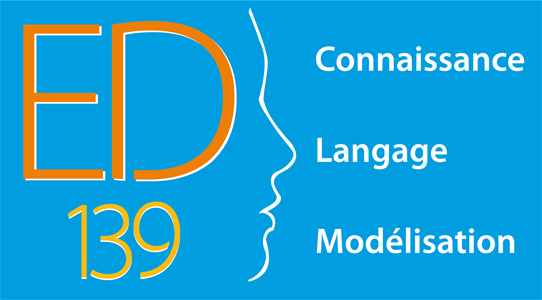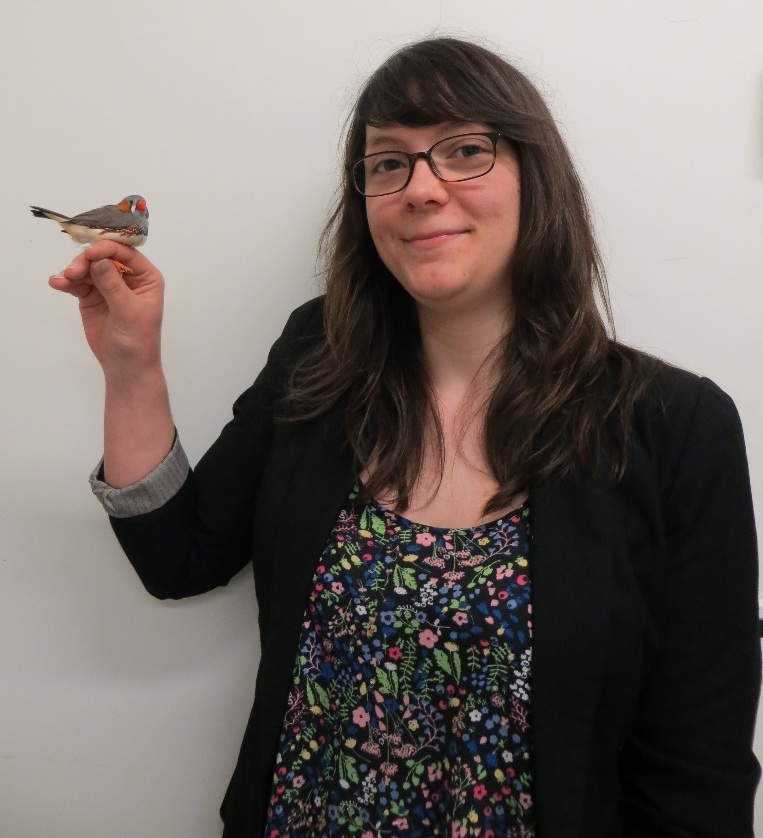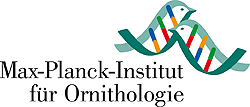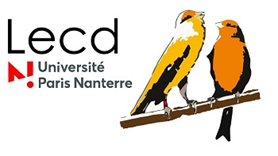Lucille Le Maguer
PhD student
Supervision Sébastien Derégnaucourt
Phone : +33 1.40.97.47.86
Mail : lucille.lemaguer@gmail.com
Funding

Ecole doctorale 139 : connaissance, langage, modélisation
Université Université Paris Nanterre la Défense

Research interest
Cultural evolution of birdsong in the laboratory
Understanding the origins of language is a challenge in human sciences and evolutionary biology. It has probably originated when first hominids started cooperating. The use of language has become deeply entrenched in human culture and, apart from being used to communicate and share information, it also has cultural and social uses, such as signifying group identity or social hierarchy. As well as language, birdsong is a learned behaviour and thus, provide a biologically tractable model of culture.I’m interested in studying cultural evolution of birdsong in colonies of Zebra Finch (Taeniopygia guttata) maintained in the laboratory. In the Zebra Finch, the song is learned during a sensitive period of the early life, mainly from the father. In normal conditions, each male produces a different song. In the lab, I will maintain 2 colonies, each of them originally composed with male founders singing the same song (but a different song in each colony) and I will measure song evolution during a year. From generation to generation, we expect the offspring to produce songs that will slightly diverge from the original song model through vocal innovations and error copying.
By measuring different traits of personality and cognitive skills in these birds, I will search for a correlation between some of these traits or skills and song traits in males such as song complexity or similarity to the original song model. In females, I will measure their preferences for these different types of males’ songs. Finally, I will allow encounters between finches from the two colonies and check whether birds that originated from the same song colony are more likely to cooperate.
This PhD-thesis will contribute to a better understanding of the dynamics of cultural evolution of communication signals, an important topic in human language research.
FORMER RESEARCH TOPICS
First year of Master’s degree. Female preference for different types of songs in zebra finches (Taeniopygia gutatta)
Second year of Master’s degree. Personality and learning in zebra finches (Taeniopygia gutatta)
Collaborations
- Max Planck Institute für Ornithologie, Seewisen (Germany)

- Laboratory of vocal learning, Hunter College, CUNY, New York (USA)

Communication
Oral communications
Geberzahn, N., Le Maguer, L., Nagle, L., Zsebok, S., Aubin, T. & Derégnaucourt, S. Towards an understanding of developmental and perceptual mechanisms of vocal individuality in the Zebra Finch (Taeniopygia guttata). IBAC, September 2015: XXV International Bioacoustics Congress, Murnau | Bavaria, Germany.
Geberzahn, N., Le Maguer, L., Nagle, Aubin, T. & Derégnaucourt, S. Cultural transmission of song, personality and cognitive abilities in the zebra finch. SFECA, April 2015: Annual meeting of the French Society for the Study of Animal Behaviour, Strasbourg, France.
Posters
Le Maguer, L., Geberzahn, N. & Derégnaucourt, S. Song learning and cognitive abilities in zebra finches (Taeniopygia guttata). IBAC, September 2015: XXV International Bioacoustics Congress, Murnau | Bavaria, Germany.
Mis à jour le 16 octobre 2015












